ORM is bad – can we offer an alternative?
10:20 - 11:05
DRW Henrietta Dombrovskaya
It’s a well-known fact, that although the database performance is great, and each query is executed in milliseconds, the overall application response time may be slow, making the users wait for a response for extended periods of time. The problem is not the database, but the way the application developers communicate with the database – using Object-Relational Mappers (ORM). The only way to change this behavior is to provide application developers with a tool, which is as easy to use, as an ORM, but which will allow escaping the common ORM pitfalls. That’s why we developed NORM – No-ORM Framework. To facilitate the adoption of the No-ORM approach, we developed a set of generators of user-defined types and functions. The input data is presented in a form of annotated JSON schema, which makes them easy to use by both database and application developers.

DRW
Her professional experience includes consulting for a number of government projects in Chicago and New York and providing IT and Data services in the financial sector, manufacturing, distribution, and fintech. Her research works in overcoming object-relational impedance mismatch were published in the Proceedings of EDBT 2014 Athens, Greece, and ICDE 2016 Helsinki, Finland. She authored, together with B. Novikov and A. Bailliekova, the book "PostgreSQL Query Optimization", Apress, 2021.
Henrietta is very active in the PostgreSQL community. Starting from January 2017 she leads the Chicago Postgres User Group and she regularly talks at the PostgreSQL conferences. Her contributions to the community include the pg_bitemporal project, which supports two-dimensional time in PostgreSQL, postgres_air training database (the largest open-source PostgreSQL training database), and the NORM technology - the novel way of communicating between applications and databases.
